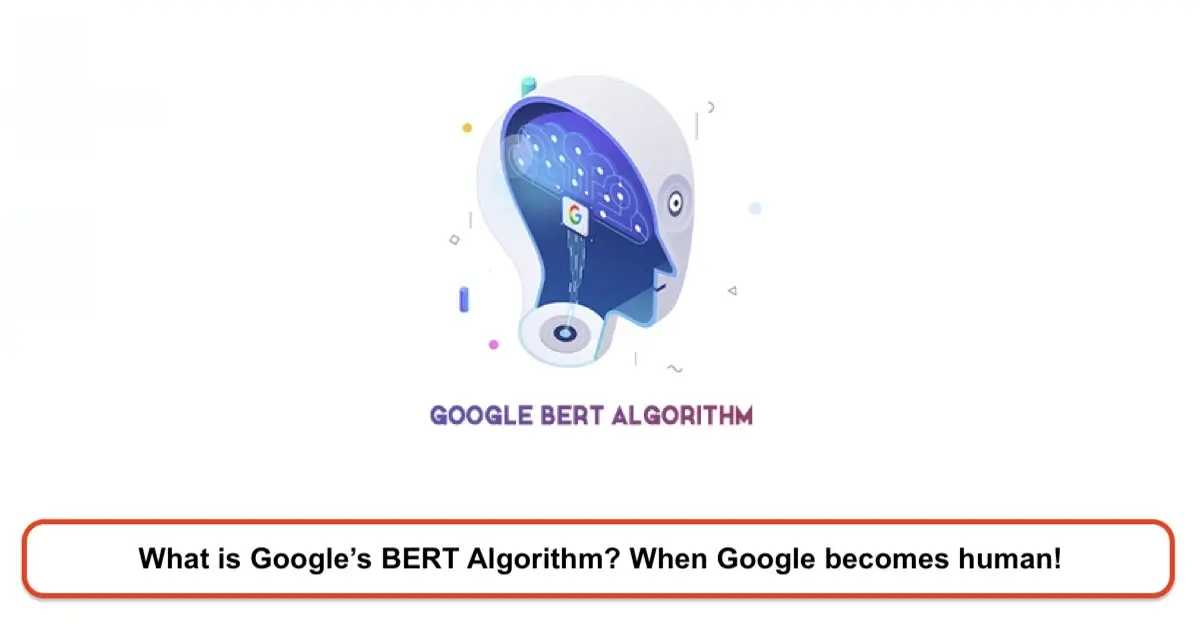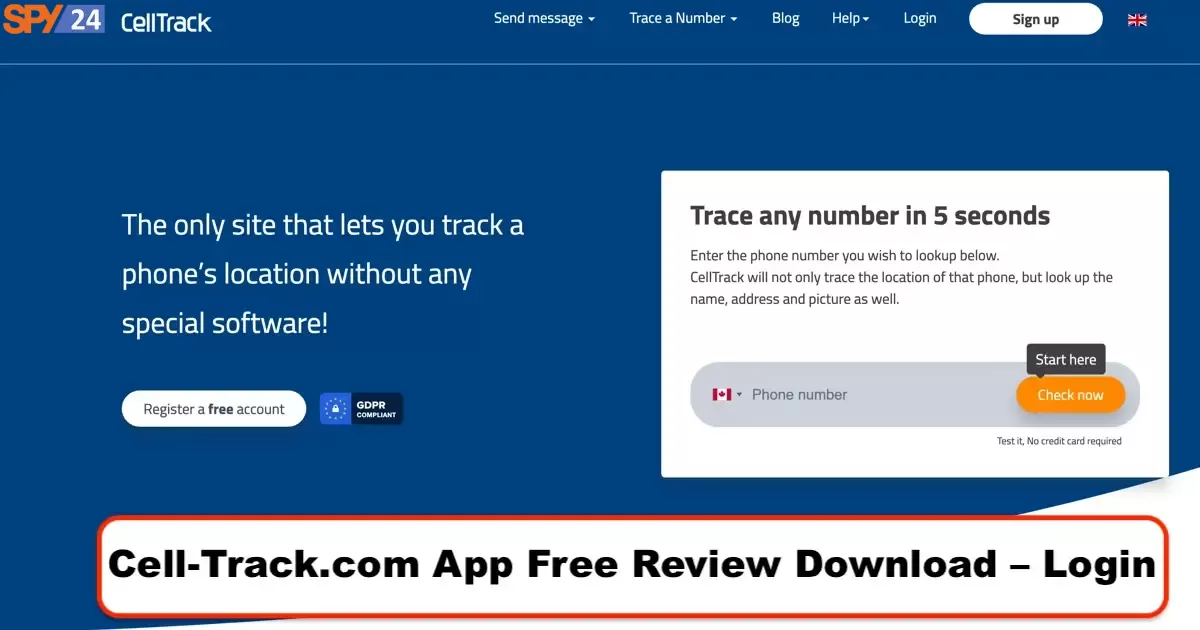
Google’s artificial intelligence has finally matured and is now at the peak of its maturity. Read about Google’s largest AI technologies and their impact on search in this article.
Just when you thought internet search had reached its pinnacle and could not get any better, Google designed and released its biggest and smartest algorithm in the past 5 years. This algorithm, known as BERT, is an AI-based algorithm that helps Google bots understand the semantic structure of the words in a searched phrase (query) more precisely.
The word BERT stands for Bidirectional Encoder Representations from Transformers! Please take a deep breath and don’t worry about the scary and overly technical name of this algorithm. In this article, we want to focus on precise points that can shape the fate of your site’s SEO in the not-too-distant future, instead of focusing on the news and controversies of this update, which is often seen on social media these days.
READ More:
What is Google’s BERT algorithm and what is its purpose?
In the simplest possible terms, BERT is a model of colloquial and everyday language that helps Google algorithms understand even the smallest parts of colloquial language, like prepositions, as well as a human.
Now we ask you when you start typing in Google, what kind of language do most of the suggested phrases use?
So if you think about it, it makes a lot of sense:
Since the entities that search in Google are humans and most often search for a phrase in their own colloquial language, then if Google bots focus on the human and natural aspect of language instead of the mechanical structure, the final result will be more ideal.
Of course, Google has largely replaced natural language with machine language by releasing the RANKBRAIN algorithm, but the Bert algorithm can serve as a complement to Rank Brain, providing more accurate and relevant results for the user. You ask how?
BERT’s understanding of complex language structure, when artificial intelligence works wonders!
In addition, another issue that improves with the advent of Google’s new algorithm is understanding the position of words in sentences. What? You didn’t understand what we mean? So let us give you an example.
When you ask Google “ways to immigrate to Canada,” Google does not look at each word in this sentence as separate units but rather detects the concept of each of these words based on their relationship with each other. In this example, if we change the preposition “to” to “from,” the meaning of the sentence changes completely.
Before the BERT update: Google couldn’t understand the difference between the prepositions “to” and “from” and would only show results related to immigration to Canada.
After BERT update: Google understands the difference in meaning between these two prepositions, and for each search, it shows results related to one type.
Interestingly, these fascinating inventions are not recent. In 2018, Google’s artificial intelligence researchers introduced them in a prestigious educational article about Google’s AI and its impact on understanding human language in general.
According to the information in this article, BERT updates can make machines (like algorithms, computers, etc.) analyze everyday language with greater speed and ease, significantly reducing the percentage of misconceptions about human language. This process in practice is called NLP or Natural Language Processing, which can be referred to as the core of the BERT algorithm.
In short, we can say:
Algorithms can understand our language correctly in the same way we use it Google’s search algorithms can analyze user queries more accurately by better understanding our language Therefore, we have:
A better understanding of human language + more accuracy in analyzing user queries = more accurate results for the user’s search objective
To not only focus on theoretical definitions, but we have also brought you a practical example to see all these explanations in action.
This a fascinating example for a better understanding of Google’s BERT update
Let’s assume we search “How to catch a cow fishing” on Google.
Interestingly, the word “cow” in English has two different meanings: one is a cow and the other, in the context of fishing, refers to a type of spiky sea fish.
Before this update, if you searched for “How to catch a cow fishing,” the results would be related to the first meaning of the word cow, i.e., cows.
You probably noticed that we used the word “fishing” in the above query, but Google ignored this word and showed us results related to cows.
Guess what happened after the BERT update?
The same search shows results full of pictures of a species of spiny sea fish, and results related to fishing.
This means that the BERT algorithm has understood that since the searched phrase includes the word “fishing”, the results show you should be closely related to fishing.

What type of query does the BERT algorithm impact most?
If you remember, Google’s new algorithm update in March 2019 made a lot of noise due to the significant changes it made in search results. But you may wonder why there isn’t much information about the rank shifts of websites due to the BERT algorithm on social networks.
The reason is that the BERT algorithm focuses more on long, dialogue-centered queries and since long-tail keywords are not usually the first target of SEOs, BERT’s changes are not yet completely visible for many websites.
Moreover, according to Google, this update changes 10 percent of search results. This means that out of every 10 results, at least one of them has used Google’s new language model BERT. So, if we want to generalize this update to all queries, it wouldn’t be quite accurate.
The Impact of the BERT Algorithm on SEO and Optimization Methods for It
The first question that many people ask with the release of this update is whether BERT affects SEO. In response, we should say:
Since SEO is the process of optimizing a site for search engines, any changes that search engines make to their algorithms impact the optimization process.
So, the main question is not whether Google’s new update affects SEO or not, but the more important question is to know what optimization methods exist for Google BERT.
One of the jokes that have trended about BERT optimization on social networks relates to the following top ten list:
10 Ways to Optimize Google BERT:
- You
- Can’t
- Optimize
- For
- A
- Deep
- Learning
- NLP
- Algorithm
- Write for humans
If we want to speak in Google’s language, we should point out the fact that there is nothing you can consider “optimize for Google BERT”.
Mr. Danny Sullivan, one of Google’s notable figures on Twitter says:
There is no optimization method for BERT. The new update has only made our algorithms smarter and that means we can better understand the content that is written for the user.
So we conclude that we first need to understand the user’s needs and start creating content based on that.
If you pay a little more attention, you’ll realize that this algorithm focuses most of all on the search goal of the user and the only reason for its release is to improve the search experience.
We recommend that before reading the next section, thoroughly study the important article we’ve written about “What Is Seo? Why Should I Prioritize Website Seo?” and then return to the final part of the article.
Understanding the user’s search intent and optimizing for it is the key to success in Google’s BERT algorithm.
One of the things the BERT algorithm does well is predict the user’s search intent with a low error rate. This means that if you mistype one of the words in a phrase, but the rest of the words have the same meaning, Google accurately understands your intention and surprisingly shows you in the results exactly what you had in mind!
So we can conclude that the main goal of the BERT algorithm is to better and more accurately understand the user’s search intent.
Conclusion: Instead of focusing on machines, pay more attention to your users’ conversational language.
Just think for a moment about the various machine methods in SEO: Yoast WordPress plugin, keyword repetition, black hat SEO.
Now you can rest assured that the path Google is taking is exactly against mechanization; quite the contrary, Google is becoming more human every day, thinks like a human, and therefore can better help you in internet searches.
So with all these explanations, we should tell you that it is better to speak directly in your user’s language in your site content, and using this language, provide them with the most valuable content.
The most important user questions related to Google’s most serious BERT algorithm (and answers to them!)
From the very beginning of the release of Google’s new algorithm, users have asked many questions about this great achievement of Google, and we will answer the most important ones below.
- Is the BERT algorithm active for the English language as well? Google has announced that this model is initially only active for English queries but will gradually be applied to all languages of the world.
- Is the BERT model the new RankBrain? Due to the AI nature of BERT, many people compare it to RankBrain. Although BERT is an achievement in Google’s AI field, it has no connection to RankBrain. At best, we can say that these two algorithms work together as complements.
- When was this algorithm officially applied to Google search? BERT was introduced into the Internet search mechanism for the first time in late October 2019 and, according to Google’s report, so far has applied good and acceptable results on the Google search results page.
- Does Google’s BERT change the concept of content marketing? As Google gains a better understanding of our language, we can better deliver our valuable content to the user. The only thing we need to do is to produce content for the user in their language, and not worry at all that Google does not understand this move of ours.
We’ve understood the impact of Google’s latest algorithm (BERT), now what should we do?
Many websites that have discussed Google’s latest algorithm have simply rehashed content from foreign sites and, by presenting a series of first-hand data, have left users with many questions. But reading various articles and news about BERT, the first question we ask ourselves is, what should we do?
BERT’s Impact on Content Production and Marketing Methods
The first change SEO workers need to make with the advent of Google’s new language model is in content production, especially textual content. Old content production methods like repeating keywords or turning on the green light of the YOAST WordPress for visibility on Google will no longer be effective. Instead, using keyword research, we should understand the user’s search objectives more precisely and start producing content in the language that users are searching in.
Conclusion:
In this article, we discussed Google’s BERT algorithm and explained how it works and its impact on website optimization. Don’t forget the first and last thing Google wants is for users to get the best results from their search on this search engine, and all algorithms are aligned with this goal. So, if you want to be in Google’s top results, consider the user when writing content and ask yourself, does this content answer the user’s questions? Can it meet the user’s needs effectively?
If your answer to these questions is yes, then you can be confident that the BERT algorithm will make your site accessible to those who are searching for it.
If you have any questions about this Google algorithm, or if you want to add a point to this article, share it in the comments section and we will respond as soon as possible.
Frequently Asked Questions:
Now that the BERT algorithm understands conversational language well, can we write our website articles in colloquial language?
This issue can vary depending on your audience persona, and a definitive answer cannot be given. However, it should be noted that the algorithm focuses more on whether your article meets the user’s needs or not, rather than the tone of the writing. So, focus on meeting the needs of users first.
What’s the difference between Google’s BERT algorithm and the rest of Google’s algorithms?
The most significant change Google has made in its latest algorithm relates to a better understanding of spoken language in user search phrases. Using the BERT algorithm, Google can even identify the smallest elements of language, such as prepositions and polysemic words.
How does Google’s BERT understand spoken language so well?
The new BERT update can be seen as the culmination of Google’s remarkable efforts and achievements in artificial intelligence. With the help of new AI, Google can understand linguistic structures like a human and provide the best results to the user by deeply understanding sentence components. This means Google, instead of being an engine, now has a brain like a human!
The BERT update is active! What now?
To keep pace with Google’s new change and make the most of it, you should do three things:
- Understand the user’s search goal
- With understanding the goal, provide suitable content for the user.
- Be familiar with your audience’s language and produce content in this language.
- By reading the full article, you can delve deeper into these three processes and seize the future of SEO and artificial intelligence!




